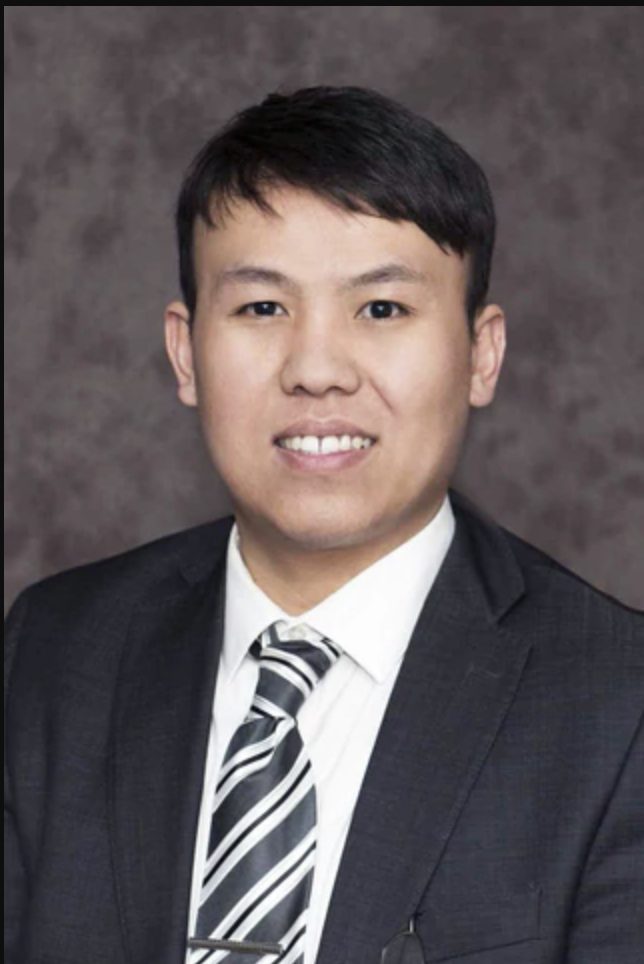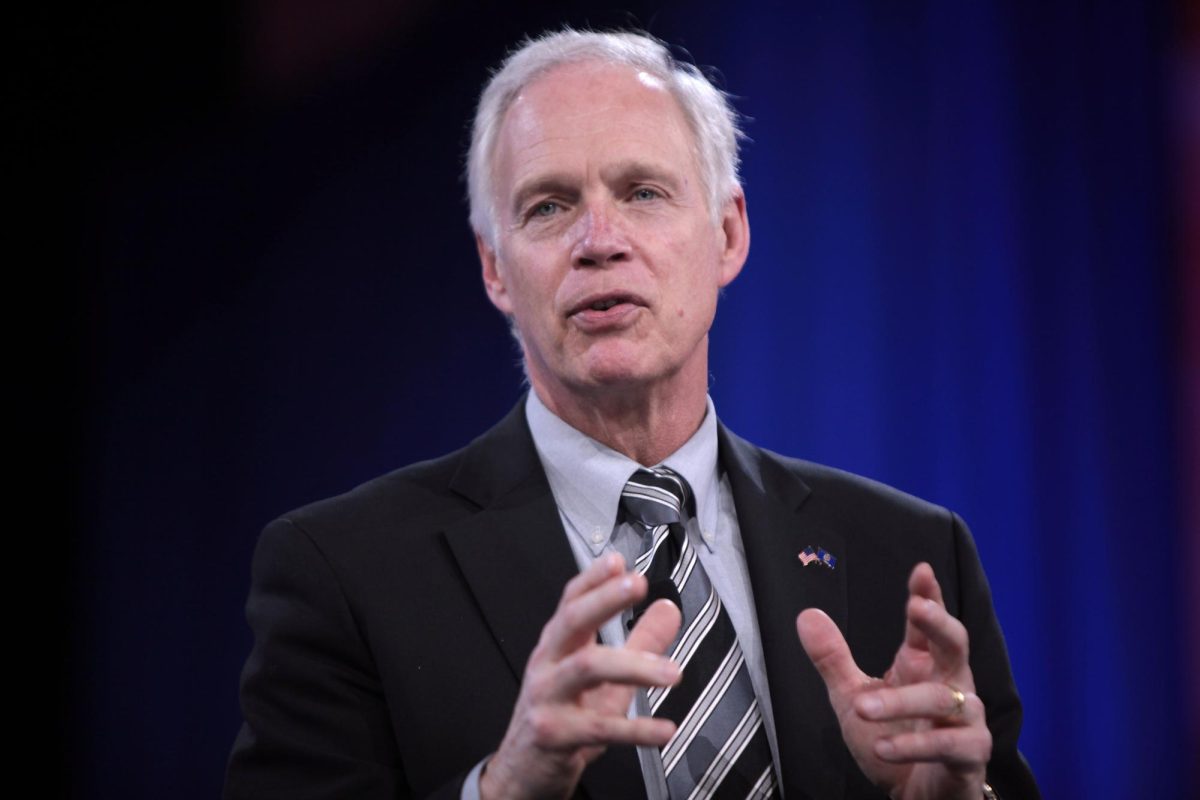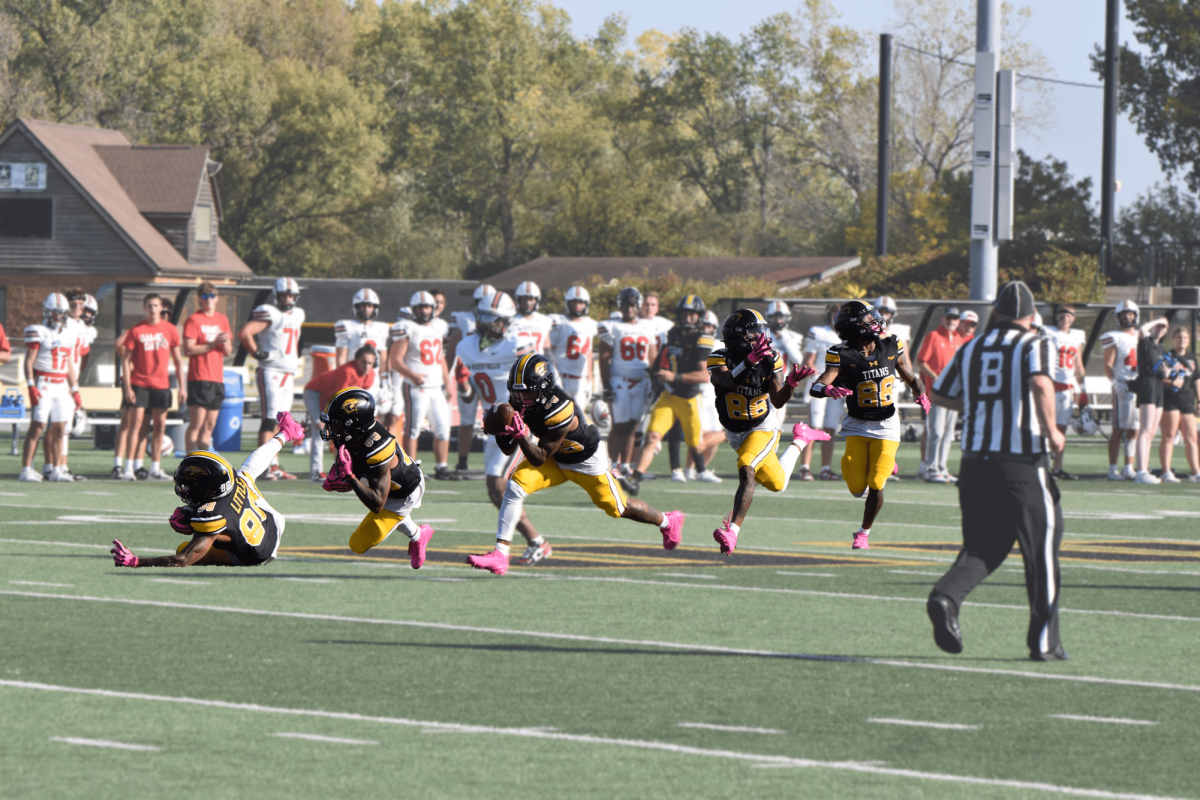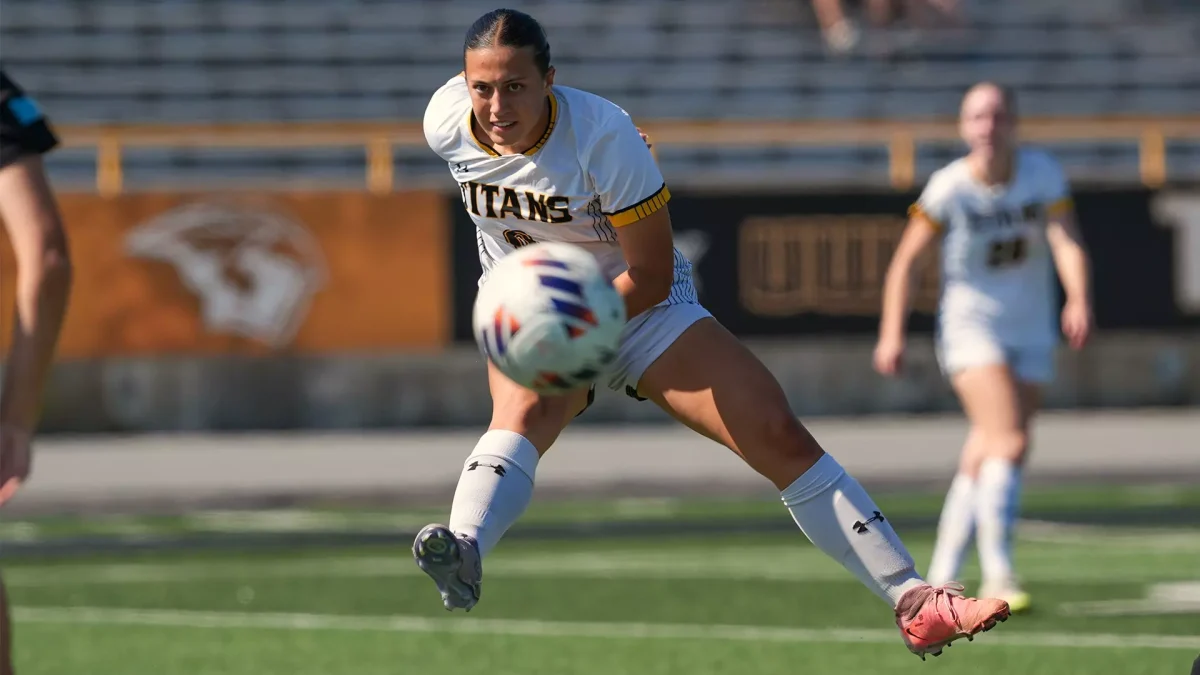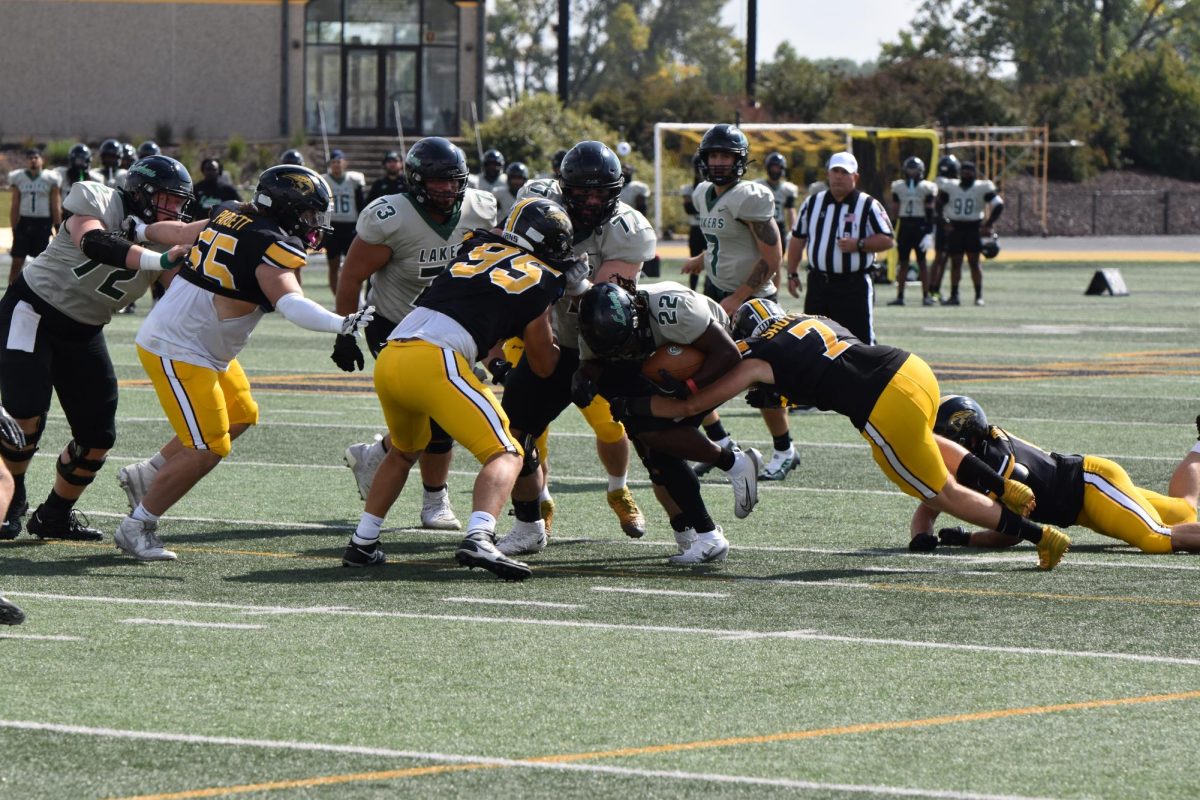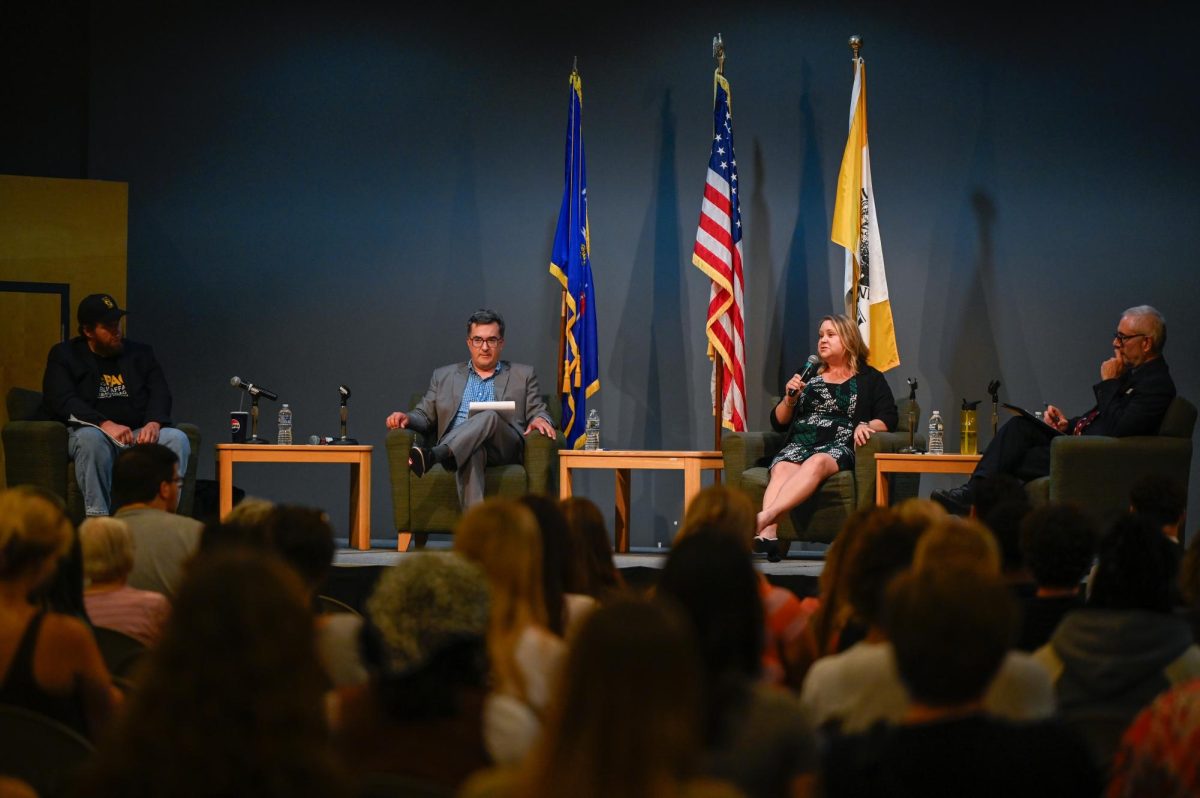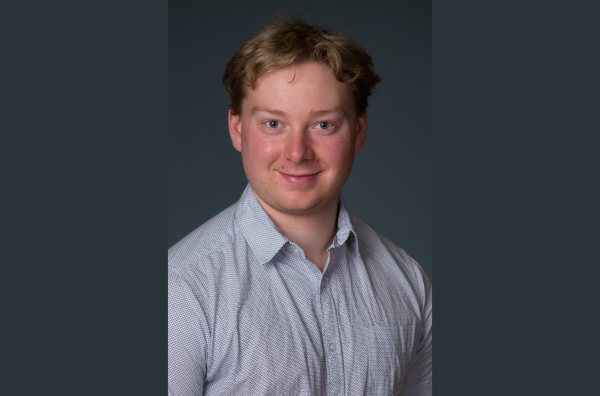Former UW Oshkosh affirmative action director Brian Xiong reached a $200,000 settlement with the Universities of Wisconsin Board of Regents out of court after Xiong appealed the case to the Seventh Circuit of the United States Court of Appeals.
Xiong said while he settled the case with the Board of Regents in September 2023, he still feels trauma from the court case six months later.
“[The court case] was very stressful,” Xiong said. “To go through [the appeals process], you know, and to have to relive my life, what happened at UW Oshkosh, when you have to relive the discrimination at the university, it was very stressful.”
Xiong sued the Board of Regents for discrimination and retaliation under Title VII of the Civil Rights Act of 1964 after he was fired from UWO in 2019. Court documents show that Xiong sued the Board of Regents in 2020 because he alleged the university discriminated against him on the basis of race and national origin, and retaliated against him when he complained about race discrimination in UWO’s hiring practices.
The U.S. District Court for the Western District of Wisconsin originally ruled in favor of the Board of Regents in February 2022 because Xiong “failed to proffer sufficient evidence from which a reasonable jury could find discrimination or retaliation.”
Xiong said he was hoping that the U.S. District Court for the Western District of Wisconsin would see the situation he had to endure at UWO.
“I feel like the judge did not carefully look over all the documents and see the point that I tried [to make],” Xiong said. “I knew I had to go through the federal court system and had to wait to have them review the case.”
Xiong filed an appeal with the Seventh Circuit Court of Appeals and the court issued an opinion and order document Sept. 1, 2023, that agreed to hear the case. In the document the court said while it ruled in favor of the Board of Regents on most of Xiong’s claims, the Seventh Circuit reversed and reprimanded the previous decision on the retaliation claim.
Xiong said he was glad that the federal judge in the higher court understood the situation he was in while working at UWO.
“You know, you try to do everything right, and I was trained in diversity,” Xiong said. “I was mentored by a supreme court judge in the state of Minnesota, and I know what I’m doing. You do the right things, I do exactly what the books say, and I do what I am supposed to do, and I do my job, and then I get fired. It was a very depressing moment in my life for me.”
Before the Seventh Circuit Court could make a decision on the case, the Board of Regents opted for the settlement to dismiss the suit.
“This decision is in the best interest of UW Oshkosh, and it brings the matter to a close,” UW Oshkosh spokesperson Alex Hummel said in a statement to the Oshkosh Northwestern Dec. 28, 2023.
Xiong said members of the Hmong community and his attorney wanted him to fight the case all the way to trial.
“There is a very high chance we [would’ve] won the case,” Xiong said. “But then because of my depression, and then the COVID-19 pandemic, we lost those three, four years, I just decided that I just didn’t want to relive everything over and over and over again. I made the decision to settle because I told my attorney that the trial will be really mentally [and] physically draining and I just don’t have the energy to go through the trial and then have to deal with this.”
Xiong said he gave the money from the settlement back to his community.
“I helped students purchase books that help them to know how to write their story, what they’re going through, whether in higher education or any school,” Xiong said. “I wanted to show students that you still have a voice. And if something’s not right, you should speak up.”
After being fired from Minnesota State Community and Technical College, where he was chief diversity officer from May 2016 – April 2017, Xiong was hired as UWO’s affirmative action director in October 2018.
Prior to starting his position at UWO, Xiong earned a $75,000 settlement with Minnesota State Community and Technical College, suing the college after alleging his termination violated Minnesota state human rights laws.
Xiong said that the settlements in Minnesota and Wisconsin are not just about the money.
“I would’ve gone all the way to a trial, but I just don’t want to have to relive the whole thing over and over again,” Xiong said. “Since UWO settled, I just said ‘I’ll walk away.’ I never want to work on any UW System campus again. For me, it’s not about the settlement but it is about teaming up with students, faculty or employees because they have a voice. They need to know if something is not right, they should speak up.”
When Xiong arrived at UWO, the university had restructured the Director of affirmative action position after the resignation of former Affirmative Action Director Ameerah McBride. The main change in the restructuring was that the Office of Equal Opportunity, the Office of Equity & Affirmative Action and the Office of Human Resources Department were all merged together.
As a result of the new changes, Xiong reported directly to the Associate Vice Chancellor of Human Resources, Shawna Kuether, instead of to Chancellor Andrew Leavitt, and received a lower salary than previous directors.
According to court documents, Kuether had little experience in affirmative action, and this was the first time she would supervise a director-level employee. In addition, Kuether obtained her first affirmative action certification after Xiong was terminated.
According to the opinion and order from the U.S. District Court for the Western District of Wisconsin, Kuether said she felt that Xiong “did not respect her as a supervisor, committed her to doing a presentation without her knowledge and made comments about her limited qualifications.” Xiong disputed this, but the court originally ruled he did not provide support for his view.
Xiong said that it was very difficult for him to perform his job duties under the supervision of human resources.
“My supervisor had made negative remarks about minority individuals and she did not have the skill set and experience in promoting diversity, equity and affirmative action in higher education,” Xiong said. “Under the UWO administration’s leadership, it was more discriminatory against minority employees and applicants and illegal hiring and promotion practices rather than teamwork to promote inclusion in higher education.”
According to court documents, Xiong argued from the start of his employment at UWO that he experienced “severe resistance to his work, whereby his job performance was unfairly scrutinized, and he was micromanaged by human resources.”
Through resistance, he reported violations of policy and sought to ensure the university’s affirmative action plan and policies were followed. Leavitt designated him to process all complaints related to discrimination.
Xiong completed his first and last investigatory report in December 2018. According to the plaintiff’s brief, his report, which mirrored the structure of those that were submitted by his predecessors, was received by Kuether who felt it was insufficient because it contained grammatical errors and lacked the type of analysis UWO looked for relating to investigatory reports. She claimed it was a mere summary and failed to make a conclusion on whether or not anyone violated a policy.
The plaintiff’s brief given to the court said that the report did in fact bring justification to the violation of a policy and his “grammatical errors” related to the fact that English is his second language, with Hmong being his first language.
According to the plaintiff’s brief, rather than attempt to support and help Xiong improve issues they found in his work, Kuether, Leavitt and Chief of Staff Kate McQuillan all kept their concerns to themselves and did not follow up with Xiong. No one brought a concern about the grammatical errors to his attention or gave him feedback on the report at any time during his employment. Kuether further characterized him as not a “good fit” and someone who did not “understand his role.”
The opinion and order from the court also stated that in January 2019 Xiong was the hiring manager for a new open position at the Department of Equity and Affirmative Action. As hiring manager, he was responsible for creating the position description, identifying a search and screen committee and making the final decision on who to hire. The search committee ultimately chose three applicants to interview: two white women and one Latina woman.
Xiong supported the hiring of the Latina woman because he believed she had the most experience in affirmative action and would contribute to the diversity of the department. While Kuether was absent during the interviews, she received feedback from other staff members that felt another candidate had a stronger background.
According to court documents, Kuether said that Xiong said they were obligated to hire his preferred candidate because of their diversity plan and that Kuether could not ask whether she was a good candidate. According to Xiong, Kuether said “people of color are not a good fit for human resources.”
On March 7, 2019, Leavitt and UWO Vice Chancellor James Fletcher were in Madison for a Board of Regents meeting. They met with Vice Chancellor for University Affairs Robert Roberts to discuss Xiong’s employment. After Kuether took her draft performance review responses, Fletcher decided to terminate Xiong March 12, 2019.
Xiong said the biggest lesson that he’s learned from UWO is that the administration is all about power and who is in control.
“As a gay Hmong and a person-of-color and educator, I thought that by going to another person-of-color, Mr. James Fletcher, a Black male, who was Shawna Kuether’s supervisor at the time, an administrator in the top role, would understand the struggle I went through at UWO,” Xiong said. “Boy, my thought was wrong. Just because someone is a person-of-color or a minority, he may not be in the same boat with you to promote diversity, equity, and inclusion in higher education.”
Xiong said even though he was trained and has a doctorate degree in counselor education and supervision, UWO administrators had no confidence in his abilities.
“They just didn’t listen to me,” Xiong said. “I believe that if we could have worked together, we could’ve had a better outcome. The [administrators] just think that they know everything, and they just decided it was better to fire me. Why did they fire me? I just did my job. Look at our pattern of discrimination [at UWO]. There are a lot of, you know, illegal practices here on campus.”
According to the court opinion and order, this surprised Kuether as no performance improvement plan existed and this was “not typically how [UWO] does business in terms of performance concerns.”
According to court documents Xiong’s position was filled by a white man Aug. 27, 2019. After Xiong’s termination, the UW System began providing legal investigators to campuses to help with investigatory reports, which Xiong said he never had the support from. However, the defendant disputed this, asserting that UWO offered Xiong similar support.
Xiong said usually new employees are welcomed into their new jobs, but he never felt that way when he was hired at UWO.
“They usually treat you so nice,” Xiong said. “But [administrators] made me feel so bad it’s like you’re a criminal. And that’s why I told my son ‘No. Never again. Never UW Oshkosh.’”
Xiong said that he eventually plans to go back to working in education.
“My long-term goal is to be a provost because I started my career with teaching,” Xiong said. “Throughout my career, I have always wanted to make sure that you know, everyone is being treated equally. I just want to give back to my community and support students where I can, and to begin to heal from what happened to me at UWO.”


